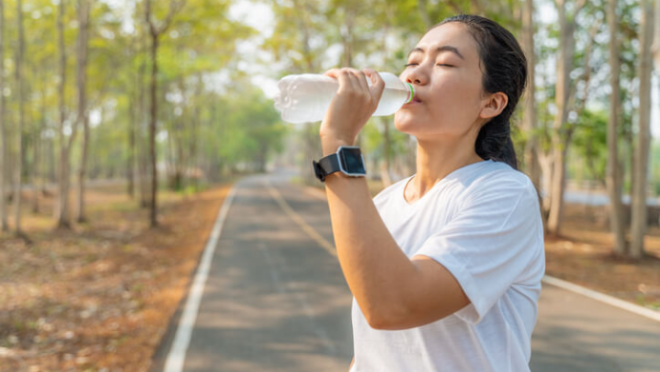Summer survival guide: Embracing the heat without losing your cool
Summer survival guide: Embracing the heat without losing your cool

Summer is just around the corner, and in many parts of the country, that means more than just school holidays and ripe mangoes. It means facing weeks—if not months—of relentless heat, power cuts, sweating through clothes, and trying to get a good night’s sleep when the air itself feels heavy.
With temperatures rising every year, and cities getting hotter due to concrete and traffic, it’s becoming more important to prepare ahead. A few smart changes in your daily habits can make the heat a lot more bearable.
What you drink or eat
Let’s begin with the simplest yet most essential habit: staying hydrated. When it’s hot, your body loses water quickly. Even if you’re doing nothing physical, walking in the sun or sitting in a warm room can cause you to get dehydrated. Most of us wait until we feel thirsty, by which time your body’s low on liquids. Get in the habit of drinking water during the day, even if it’s in the form of a few sips every hour. Keep a water bottle by your side—it’s a small yet potent cue. If you get bored of plain water, flavour it with lemon juice, a splash of salt and sugar, or drink coconut water. They keep you hydrated and replace the salts your body loses through sweating too.
What you eat also plays a big role in how you feel. Heavy, spicy, oily food may taste great but can make you feel tired and sluggish in summer. Your digestive system has to work harder, and that generates even more heat. Instead, try switching to lighter meals. Try rice with lentils, vegetable curries, fresh cucumbers, and chilled yogurt. These meals are easier to digest and give your body a break. Fruity options like watermelon, pineapple, and papaya are hydrating and full of nutrients too. Be careful with street food or anything that’s been sitting out too long as it can spoil quickly in the heat and cause food poisoning.
Daily routine
Now, let’s talk about your daily routine. Adjusting your timing can make a big difference. Try to get outdoor chores done in the early morning or after the sun starts to set. Do your outdoor tasks in the early morning or after sunset. 11am to 4pm is generally the hottest part of the day, and it’s better if you remain indoors if possible.
If you’re a student or working from home, consider rearranging your schedule to include rest breaks during peak heat. Take short naps, lower your physical activity, or focus on quieter tasks during those hours.
What you wear
Clothing is another area where small changes go a long way. Synthetic clothes trap heat and sweat, making you feel even hotter. Opt for light-colored, loose, breathable clothes made of cotton or linen. These keep your skin well-ventilated and allow sweat to evaporate quickly. Also, dark colors absorb more heat, so it’s better to stick to whites, pastels, or other lighter shades.
If you’re heading out during the day, wear a wide-brimmed hat or use an umbrella. Sunglasses keep your eyes protected, while sunscreen prevents sunburn as well as any long-term damage to skin.
Keeping environment cool
Let’s not forget the place where we spend most of our time—home. Your house can trap heat and become uncomfortable quickly. Keep windows open early in the morning or at night to let in cooler air. During the day, use thick curtains or shades to block out sunlight.
If you have a fan, position it to push hot air out of the room or draw cooler air in from shaded areas. Using an air conditioner? Keep it at 25°C to avoid overcooling and save electricity.
In places with frequent load shedding, rechargeable fans or even hand fans can be lifesavers. Sleeping on the floor, especially if you live on a higher level, can also feel cooler than using a bed.
Hygiene
Cleanliness and self-hygiene also come into play. Take warm baths regularly to clear away sweat and freshen your skin.
Very cold water may feel nice initially but tends to make your body retain heat afterward. Do not forget to moisturise your skin and apply sunscreen when stepping outdoors.
Summer often affects your mood and energy levels, it’s normal to feel worn out or agitated. Instead of pushing through and burning out, include short breaks during the day. Try listening to music, chatting with a friend, or simply closing your eyes for a few minutes.
There’s no magic way to escape the heat completely—but there are many practical ways to cope. Whether it’s what you drink, how you dress, when you work, or how you rest, each small habit adds up.
Preparing for summer doesn’t have to be complicated. It just requires a bit of attention to how your body reacts, how the weather is changing, and how your surroundings can help or harm you.
When you take these steps, summer doesn’t feel like a season you have to fight against. It becomes something you live through with awareness, and maybe even enjoy. If you get the habits in motion properly, you can spend less time suffering from the heat and more time enjoying the season in your own way (even if it’s the season where you practically live inside an oven).


